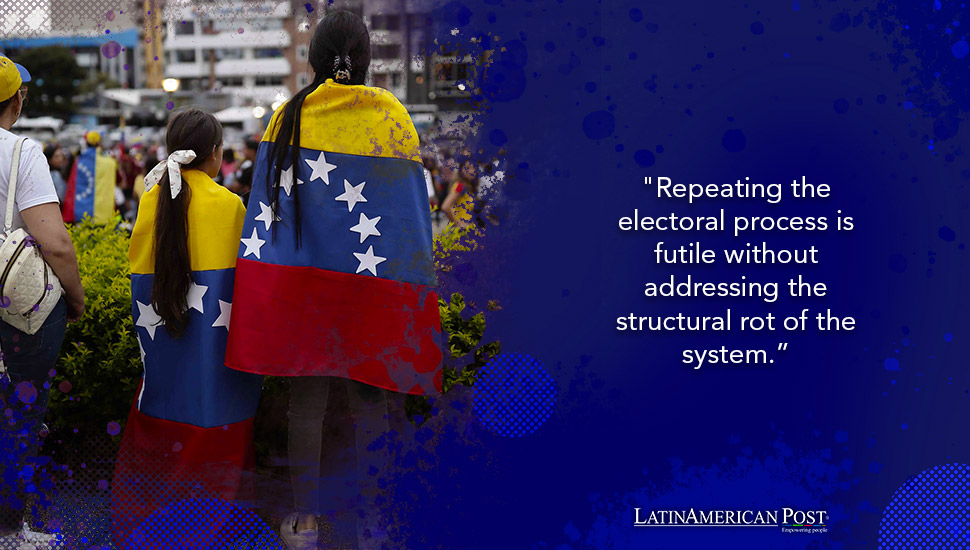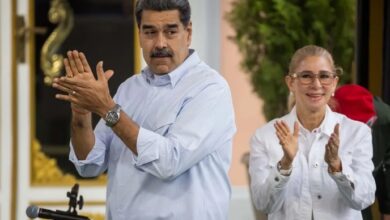New Venezuelan Elections Will Only Perpetuate Corruption Again

Calls for new elections in Venezuela promise change but offer only the same corrupt outcome, perpetuating the oppressive status quo under Nicolás Maduro’s regime. Repeating the electoral process is futile without addressing the structural rot of the system.
In the wake of Venezuela’s recent presidential election, some of Latin America’s most influential leaders have proposed holding new elections. Presidents Luiz Inácio Lula da Silva of Brazil and Gustavo Petro of Colombia have floated the possibility of a repeat election, with enhanced democratic safeguards, to solve the country’s ongoing political crisis. However, this well-intentioned proposal will likely yield the same corrupt results, perpetuating the existing power structure and undermining any genuine hope for democratic change in Venezuela.
The first and most significant reason why new elections are unlikely to produce a different outcome is the entrenched corruption that has become synonymous with Maduro’s regime. Over the years, Maduro and his allies have systematically dismantled Venezuela’s democratic institutions, ensuring that the electoral process serves their interests. The country’s electoral council, the National Electoral Council (CNE), is packed with Maduro loyalists who have repeatedly manipulated election results in favor of the regime. Even with international observers and improved conditions, there is little reason to believe this deeply compromised institution would suddenly act impartially.
Furthermore, Maduro’s grip on the state’s repressive apparatus means that any new election would take place under a climate of fear and intimidation. In the run-up to the most recent election, thousands of opposition supporters were arrested, and at least two dozen were killed in protests. The regime’s willingness to use violence to maintain power is well-documented, and there is no indication that this would change in a new election. As long as Maduro controls the military, police, and intelligence services, any electoral process will be heavily skewed in his favor, regardless of any superficial changes to the process.
Public Disillusionment Will Undermine Participation
The idea of new elections also fails to address the profound disillusionment and exhaustion many Venezuelans feel. Years of economic collapse, hyperinflation, and widespread repression have left the population weary and cynical about the prospect of meaningful change through the ballot box. Large-scale protests and international pressure have failed to dislodge Maduro in the past, and there is little appetite among ordinary Venezuelans for another round of elections that are likely to be rigged. Without a genuine belief that the electoral process can lead to change, voter turnout is expected to be low, diminishing any new election’s legitimacy.
The proposal for new elections also fails to address the deeper structural issues at the core of Venezuela’s political crisis. While a repeat election might provide a temporary solution to the immediate situation, it does not tackle the underlying problems of corruption, institutional decay, and the concentration of power in the hands of a few. Power-sharing agreements have been used to resolve similar crises in countries like Poland, Kenya, and Lebanon, providing a more sustainable path to political stability. In Venezuela, a similar approach could involve the creation of a transitional government that includes representatives from both the opposition and the regime, along with guarantees for free and fair elections in the future.
Divisions Within the Opposition Play into Maduro’s Hands
Some opposition leaders, including María Corina Machado, have rightly rejected the idea of new elections, arguing that it would betray the Venezuelans who have already risked everything to vote for change. Machado and González insist that the only option is to continue pressing for Maduro to recognize the results of the recent election and step down in January. However, there are signs of growing divisions within the opposition, with some leaders privately expressing a willingness to consider alternative solutions, including power-sharing or institutional reforms.
This lack of a unified strategy within the opposition is another reason new elections are unlikely to bring change. Maduro has proven adept at exploiting divisions among his opponents, and a split over the best way forward could play directly into his hands. Without a clear and coherent plan, the opposition risks repeating past mistakes, where internal disagreements and a lack of strategic vision have allowed Maduro to maintain his grip on power.
Moreover, the international community’s role in pushing for new elections may inadvertently reinforce the status quo. While leaders like Lula and Petro may be acting with the best intentions, their proposals for a repeat election could legitimize Maduro’s refusal to accept the results of the recent vote. By framing the crisis as one that can be resolved through another round of elections, they risk downplaying the extent of the regime’s illegitimacy and the need for more robust measures to ensure a genuine transition of power.
Addressing Structural Issues, Not Just Repeating Elections
Instead of focusing on new elections, the international community should prioritize efforts to dismantle the structures of corruption and repression that underpin Maduro’s regime. This could involve targeted sanctions against key figures within the government, support for civil society organizations working to promote democratic governance, and increased pressure on the regime to allow for greater political freedoms. Additionally, any negotiations with the government should include clear and enforceable guarantees for free and fair elections in the future and mechanisms for ensuring that the results of those elections are respected.
In the end, the idea of new elections in Venezuela is little more than a distraction from the country’s real challenges. While it may offer the illusion of progress, it is unlikely to produce a different outcome as long as the underlying issues of corruption, repression, and institutional decay remain unaddressed. Rather than repeating a flawed process, the focus should be on building a more sustainable path to democracy that addresses the root causes of Venezuela’s crisis and provides a genuine opportunity for change.
Also read: Venezuela’s Judiciary: A Tool for Authoritarian Control
Venezuela’s future depends not on repeating a corrupt electoral process but on a comprehensive strategy that tackles the structural rot at the heart of the regime. Until that happens, any talk of new elections is likely to result in more of the same—a perpetuation of the status quo, with all the devastating consequences that entails for the Venezuelan people.





